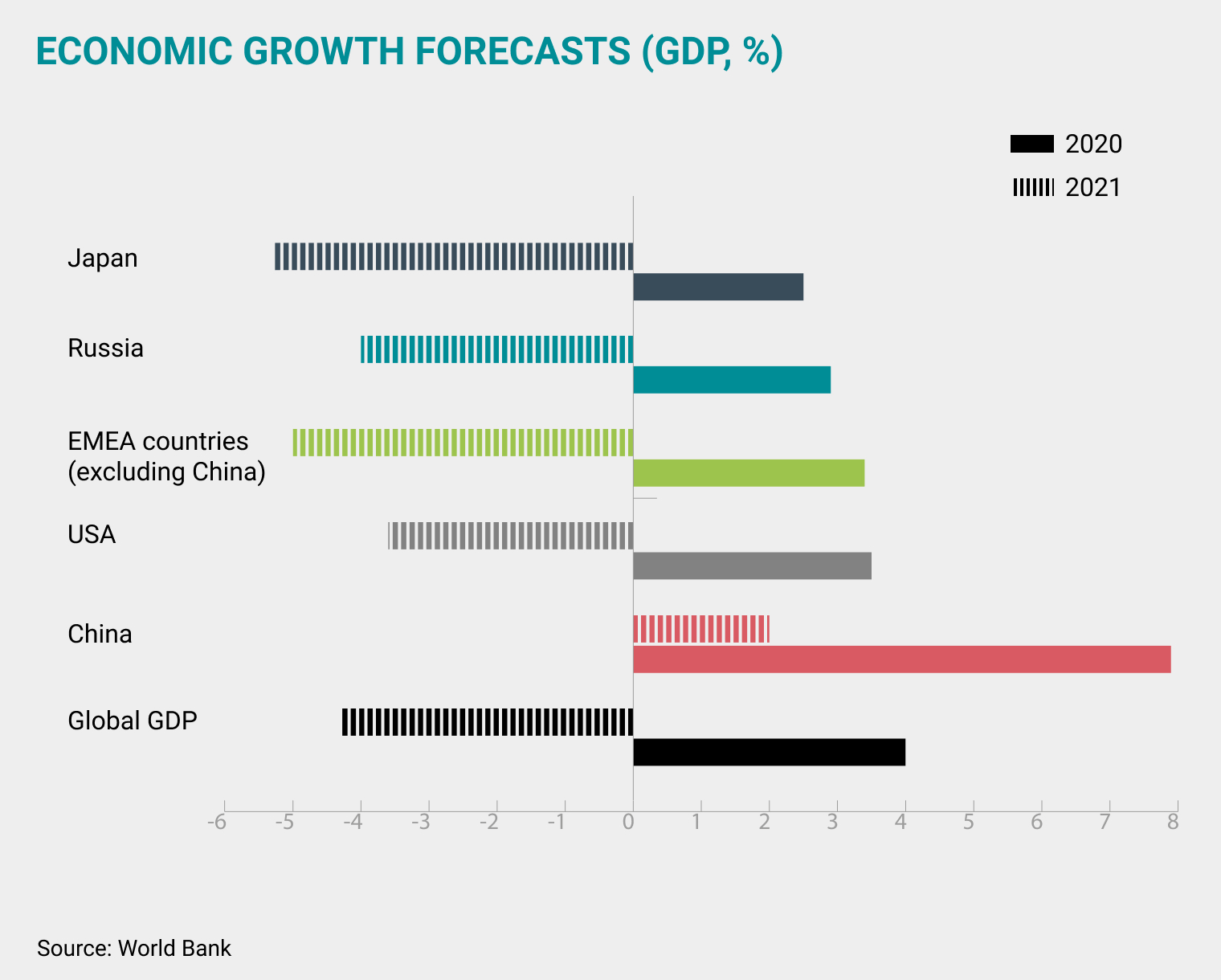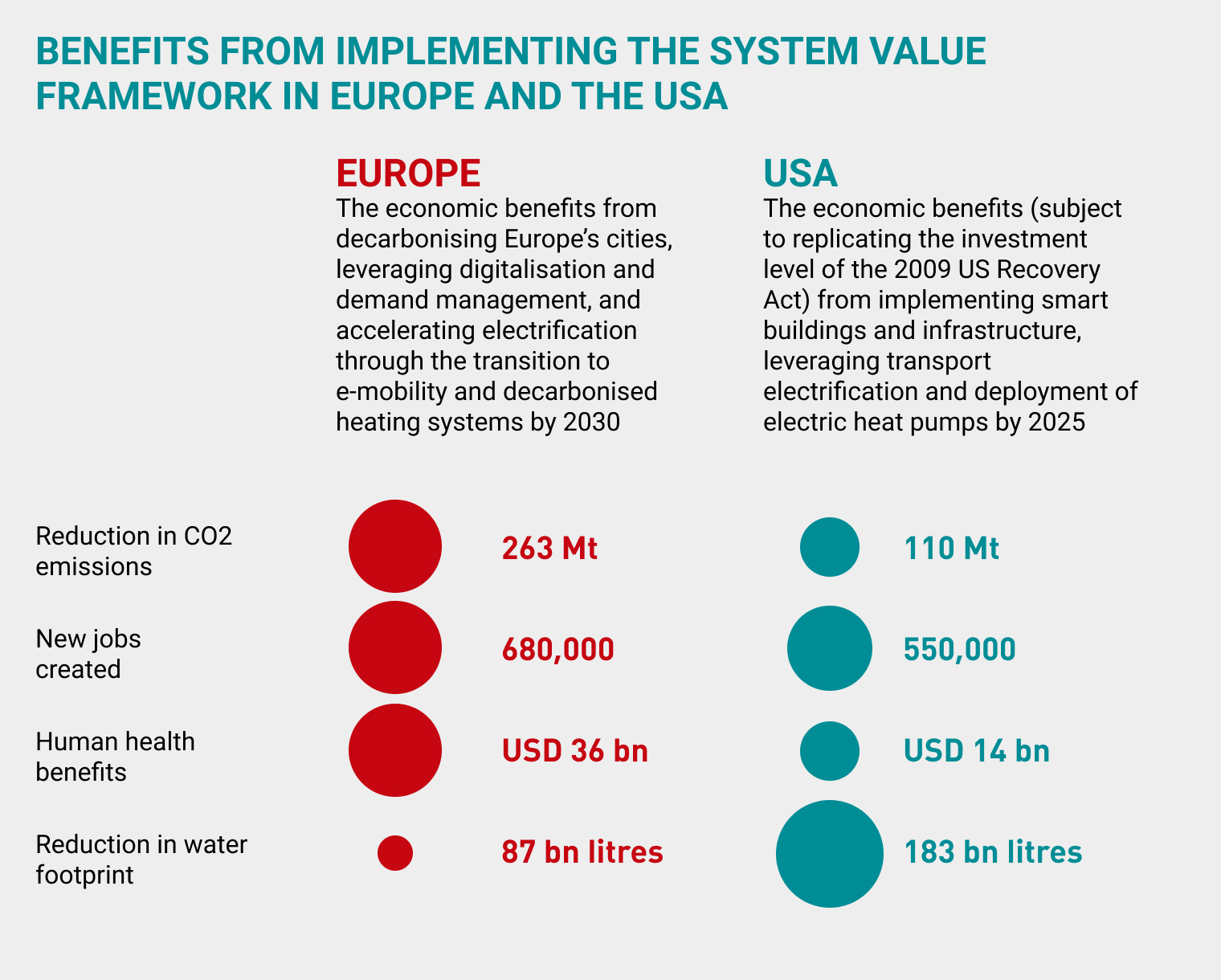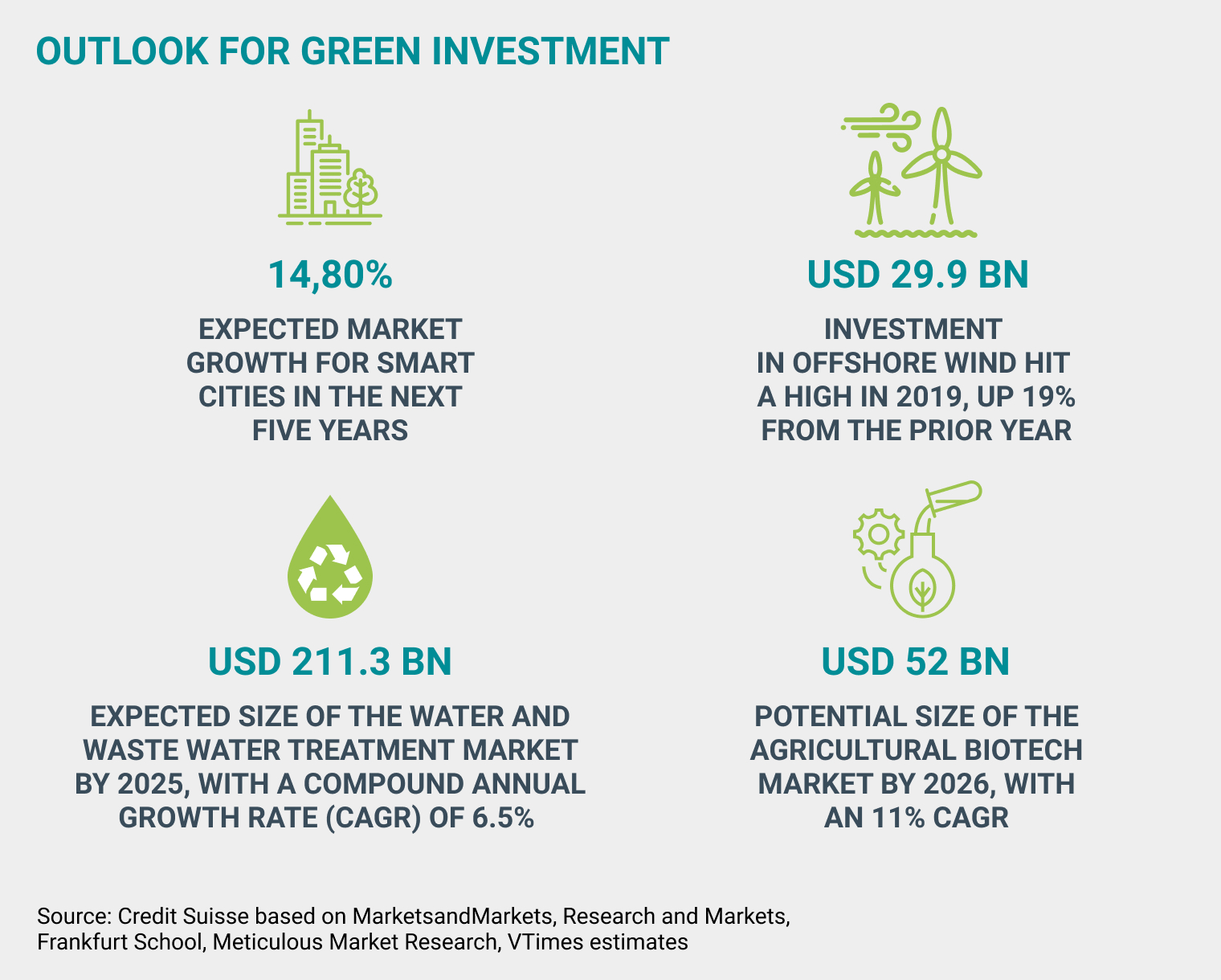The World Economic Forum (WEF) took place between 25 and 29 January 2021. For the first time in its fifty-year history, the summit was held online. As one might expect, the most important item on the agenda was overcoming the crisis triggered by the COVID-19 pandemic. In addition to this, the forum’s participants held detailed discussions regarding other economic and social processes, which are likely to shape the new normal for the coming decade.
In search of lost growth
According to a World Bank estimate, global GDP contracted by 4.3% in 2020 due to the pandemic. The majority of countries suffered recessions, while 255 million people across the world lost their jobs. Today, the major challenge facing the global community is organising the productive cooperation between business and government in an unprecedented situation, in order to restore steady economic growth, labor productivity and people’s overall well-being.
An array of countries have joined the efforts to address the socio-economic consequences of the pandemic. For example, India has focused on providing the poorest sections of its population with basic necessities. The Prime Minister, Narendra Modi, announced as early as last spring that 800 million of his country’s citizens would be provided with essential food supplies. In order to prevent mass layoffs, about USD 3 billion in government loans was provided to 8 million small and medium-sized enterprises, while 5 million credit cards were issued to farmers.
National immunity is achieved when a minimum of 70% of the population are resistant to the virus. In order to open borders, in other words to be resistant to outside sources, this figure needs to be at least 80%
The Japanese authorities allocated a sum equivalent to almost 30% of the country’s GDP to supporting the economy. The combined efforts of the government and the Bank of Japan were enough to successfully stabilise the situation, with the unemployment rate among the working-age population currently lower than 3%. Although tax revenues for 2020 are estimated to have fallen by 5.6%, they are forecast to grow by 4% this year and 2% next year. The Land of the Rising Sun is now on a steady course to economic recovery.
In the European Union, the COVID-19 situation has led to the mass development of digital technology services and workspace virtualisation (remote working now accounts for 20% of total work hours). It is true that this has also had negative consequences: investment in innovation and R&D fell by 14% last year. People who lost their jobs during the pandemic are also losing hope of finding another. Automation and the rise of digital technology will lead to deepening inequality due to a skills gap among sections of the population.
In Russia, meanwhile, there are high hopes that an increase in global prices for commodities such as oil, gas, nickel and aluminium will help the economy to recover to pre-crisis levels. The Russian economy is forecast to grow by 3.7% this year, following a 3.1% fall in GDP last year.
The scenarios for economic recovery are region specific, but until herd immunity to COVID-19 is achieved on a global scale, risks will persist for any country. National immunity is achieved when a minimum of 70% of the population are resistant to the virus. In order to open borders, in other words to be resistant to outside sources, this figure needs to be at least 80%.
Office workers in the EU now spend 20% of their time working remotely.
In the coming two years, as well as infectious diseases, it is impossible to rule out threats such as falling household incomes, natural disasters, the strengthening of government control supported by digital technology, and the vulnerability to cybersecurity threats
“According to various estimates, it is most likely that inoculating enough people to reach collective immunity through vaccinations will be achieved by the middle of 2021 at the earliest,” stated Olga Belenkaya, Head of the Macroeconomic Analysis Department at Finam Group. “If this comes to pass, then global economic growth may start to recover strongly in the second half of the year. Many questions remain though: how long does vaccine immunity last? Will it allow for collective immunity to develop? How resistant will this immunity be to new strains of COVID-19? It is possible that over the course of mass vaccination programmes in 2021 in countries around the world, side effects, which have already been discussed by participants in clinical trials, may emerge, potentially having a negative effect on people’s willingness to be vaccinated.
Incidentally, the WEF discussed how countries – most notably members of the WTO – should agree to lift all unnecessary restrictions on supply chains associated with healthcare systems. The agreement should include the entire range of medical, biological materials, and equipment necessary for pharma research and final production.
WTO reform
As the results of a poll of WEF experts demonstrated, in the coming two years, as well as infectious diseases, it is impossible to rule out threats such as falling household incomes, natural disasters, the strengthening of government control supported by digital technology, and the vulnerability to cybersecurity threats. In three to five years, we may see other side effects of the pandemic. In particular, the respondents expressed concern regarding bubbles which may emerge in certain asset markets, and disruptions to IT infrastructure. Besides this, current risks include price instability, shocks in raw materials markets and debt crises.
As WEF participants noted, investment in infrastructure is necessary to overcome negative trends in emerging market and developing economies. In this way, it may be possible to lay the foundations for subsequent economic recovery in the global economy as well. Over the past 20 years, emerging market and developing economies (excluding China) accounted for 30% of global GDP growth, with associated multiplier effects for all advanced economies. However, developed countries believe that they have shouldered the burden of trade liberalisation for far too long, and that developing countries should take on greater obligations. Meanwhile, less developed, low-income countries think that the rules of global trade hinder their attempts to modernise their economies and achieve more significant growth.
The WTO should take the lead on settling the economic issues related to the impact of the pandemic, the US–China trade wars, the fall in commodity prices and Brexit.
The World Trade Organisation (WTO) must play a central role in normalising international trade relations, but its standing is currently weak. In addition, adequate solutions to new social challenges are required. This is not simply a case of surging coronavirus infections. For the past several years, global trade has faced precedents such as the UK leaving the European Union, as well as the trade wars between the USA and China, which ran throughout Donald Trump’s presidency.
According to the WTO, member states have initiated around 600 disputes since the organisation was founded in 1995. 110 states have contributed to the resolution of these disputes, including as third-parties. Most requests for consultations (the first phase of a dispute) were made in the initial years of the WTO’s existence. Another surge occurred in 2018, in response to the USA unilaterally increasing tariffs on imported steel and aluminium from a host of countries, as well as several rounds of protective tariffs levied on Chinese imports.
Countries – most notably members of the WTO – should agree to lift all unnecessary restrictions on supply chains associated with healthcare systems
“The World Trade Organisation is in the news mostly for the wrong reasons nowadays. Many people regard it as an ineffective policeman of an outdated rulebook that is unsuited for the challenges of the twenty-first-century global economy,” stated Ngozi Okonjo-Iweala, who has recently taken up the position of Director-General of the WTO. At the same time, she is convinced that the WTO does not serve the interests of any individual country. Throughout its history, this institution has played an irreplaceable role in improving the economic outlook for many states, as well as people’s living standards. “Although the current crisis has brought the organisation’s deteriorating health into sharp focus, its further decline is not inevitable. In a world economy already imperilled by COVID-19, we must now apply the antidote – members’ political will, determination, and flexibility – needed to revive it,” highlighted Okonjo-Iweala.
Indeed, the need to push through a series of reforms to update the organisation’s rules was discussed at the Davos Forum, including those aimed at restoring fair trade practices. In particular, China must increase transparency around the operations of its state-owned enterprises and technology transfer mechanisms. An initiative has also been put forward to revoke China’s status as a developing country, which currently grants the country a host of unjustified preferences.
Flying the flag of carbon neutrality
An equally or even more significant challenge facing humanity today is climate change and environmental problems – from biodiversity loss to the depletion of natural resources. The authors of a research presented at the WEF are of the opinion that climate risks – and humanity’s inability to deal with them – are the No. 1 global threat in terms of their severity and the No. 2 threat in terms of their likelihood, after infectious diseases. Unfortunately, the world is only just reacting to events that are already happening, while necessary preventative measures are needed, particularly against the risks that are already well known and connected to the human impact on the environment.
Melting ice is just one of the signs of global climate change.
Climate risks – and humanity’s inability to deal with them – are the No. 1 global threat in terms of their severity and the No. 2 threat in terms of their likelihood, after infectious diseases
“The pandemic has shown the world how ineffective current economic models and decision-making processes are in delivering solutions: it is too late to react to something that has already happened,” stated Mikhail Babenko, Director of WWF Russia’s Green Economy Programme. “The last year has proven that the new normal should be based on the principles of sustainable development. The well-being and prosperity of modern society depends on how deeply the economy is able to integrate social and environmental factors.”
Incidentally, some hope can be found in the fact that, today, leading states in the international system are focusing on developing measures and regulation aimed at achieving carbon neutrality by simultaneously cutting the emission of hazardous substances into the environment, and increasing the proportion of renewable energy sources in the energy mix. “In so doing,” noted Dominic Waughray, Managing Director at the WEF, “businesses will have ample resources to play a positive role in the fight against climate change”.
“In order to realise this potential, it is essential to facilitate the right cooperation between governments and businesses. We urge political leaders and company leaders to join this initiative, in order to generate a positive dynamic in this area,” he announced.
According to data provided by Enerdata, renewables accounted for 35% of the energy mix in the EU, 27% in China, 21% in India, and around 18% in the USA, Russia and Japan. In 2019, the share of renewables, including hydro, in the global energy mix rose by 1.1% to almost 27%, reflecting the rising trend that began in the 2000s.
Europe promises to be the first carbon-neutral region in the world. The European Union intends to achieve this target by 2050. It is worth mentioning that EU countries are gradually phasing out coal-powered facilities, which are one of the main sources of greenhouse gas emissions. In Spain, for example, 90% of coal-powered capacity has already been decommissioned. The share of renewables in EU power generation will reach 75% by as early as 2030.
China is planning to make significant progress. In the renewables sector, China has placed particular emphasis on developing solar and wind. In addition to this, Chinese authorities are exploring the possibility of introducing differentiated limits on each province’s maximum environmental impact. In so doing, the proportion of quota-based emissions (which currently stand at 45%) will be increased by rolling out a system of environmental responsibility for a greater number of industrial enterprises. In this way, China plans to pass its peak level of emissions by 2030, and achieve carbon neutrality in subsequent 30 years.
Cities, which comprise 3% of the planet’s surface, are home to around 54% of the global population, and account for 70% of harmful emissions and 78% of primary energy demand. By 2050, the proportion of people living in cities will have risen to 68%.
Major sources of pollution include: skyscrapers, shopping centers, private transport and the increasing use of air conditioning systems.
The solution to these problems can be found in developing “system value dimensions” – a special framework programme developed by the WEF and consultancy firm Accenture. The programme focuses on a range of dimensions recognised as key to developing sustainable urban infrastructure and promoting decarbonisation goals.
According to estimates by Swiss Re, around 40% of potential actions for reducing carbon production are profitable over a 3-year period, with proper cost-benefit analyses
Green investment
Multinational corporations are also formulating business strategies within their environmental agendas. For example, LG Chem’s aggregate carbon dioxide emissions stood at 10.5 million tonnes in 2019. However, if the company had maintained its past production rate without adhering to its own environmental programme, the corporation’s CO2 emissions would have exceeded 40 million tonnes. In terms of the global climate movement, LG Chem has set the target of achieving carbon neutrality by the middle of the 21st century – in this case, emissions cannot exceed the 2019 level. This will foster an increase in the proportion of renewables in the company’s energy mix, a growth in resources allocated to developing carbon capture and storage technology (CCS), the replacement of fossil fuels with biofuels, and an increase in energy efficiency thanks to further digitalisation.
It is worth noting that investing in green technology may bring significant financial returns. According to estimates by Swiss Re (a global reinsurance leader), around 40% of potential actions for reducing carbon production are profitable over a 3-year period, with proper cost-benefit analyses. In addition, the principle of responsible investing is practiced today by many financial organisations, which provide innovators with support in the form of credit. Deutsche Bank, for example, manages a portfolio worth EUR 450 billion, and intends to increase assets held in green investments to EUR 200 billion. In so doing, the bank’s managers are acknowledging the growth in the popularity of ESG consulting.
According to estimates by the Chemicals and Advanced Materials group (is part of the WEF, and is made up of managers from major global petrochemical companies), the industry’s key focuses in 2021 will be implementing a circular economy strategy – accelerating the move away from certain types of products (first and foremost in the packaging sector), and further developing technology for polyolefin recycling. They will also continue to consolidate their goals for reducing emissions, and implement their energy transition strategies (further growth of renewables in the industry; the development of hydrogen and battery technologies; increasing the use of biofuels).
Regulatory changes will be aimed at standardising food products nationally, changing energy policy, and possible introduction of taxes on polymer products, etc. At the same time, green recovery programmes announced earlier will be actively implemented in the EU and USA, and possibly in other regions as well.
“A company which analyses the risks and opportunities associated with ESG factors will be more competitive in the long run. Therefore, it is beneficial for banks to increase the sustainability of their own operations, in order to meet the expectations of stakeholders and integrate ESG factors into the credit process as part of risk management and the development of new services,” explains Ivan Kukhnin, Head of the Sustainability Services group at Deloitte.
Reducing greenhouse gas emissions in supply chain may have an equal or perhaps even greater impact towards addressing environmental problems than in production itself
It is not just the manufacturing sector than can reduce its environmental footprint, but also trade and logistics. To address the issue of global trade’s carbon intensity, measures such as zero-rating tariffs on environmentally friendly goods and services (renewable technology, solar panels, etc.) may be introduced. The impact of this initiative, according to forecasts made by the law firm Clifford Chance, would be equivalent to reducing CO2 emissions by 325 million tonnes every year. In terms of company logistics, it is essential to optimise supply geography so that to minimise movement of goods and raw materials. Reducing greenhouse gas emissions in supply chain may have an equal or perhaps even greater impact towards addressing environmental problems than in production itself.
Joint research conducted by the WEF and Boston Consulting Group (BCG) suggests that in sectors such as production of essential goods, the fashion industry, electronics, the automotive industry, and cargo transportation supply chains account for half of all emissions.
“Around 40% of emissions in the major supply chains that we analysed could be reduced using measures which either reduce expenditure or cost less than EUR 10 per tonne of CO2 equivalent. Improved process efficiency and the use of recycled materials, as well as the increased purchases of renewable energy will bring companies significant climate gains at a very low cost,” stated Patrick Herhold, Managing Director and Partner at Boston Consulting Group (BCG) Centre for Climate Action.
Cover photo of the article: Mikhail Klimentyev/RIA Novosti
Download PDF











